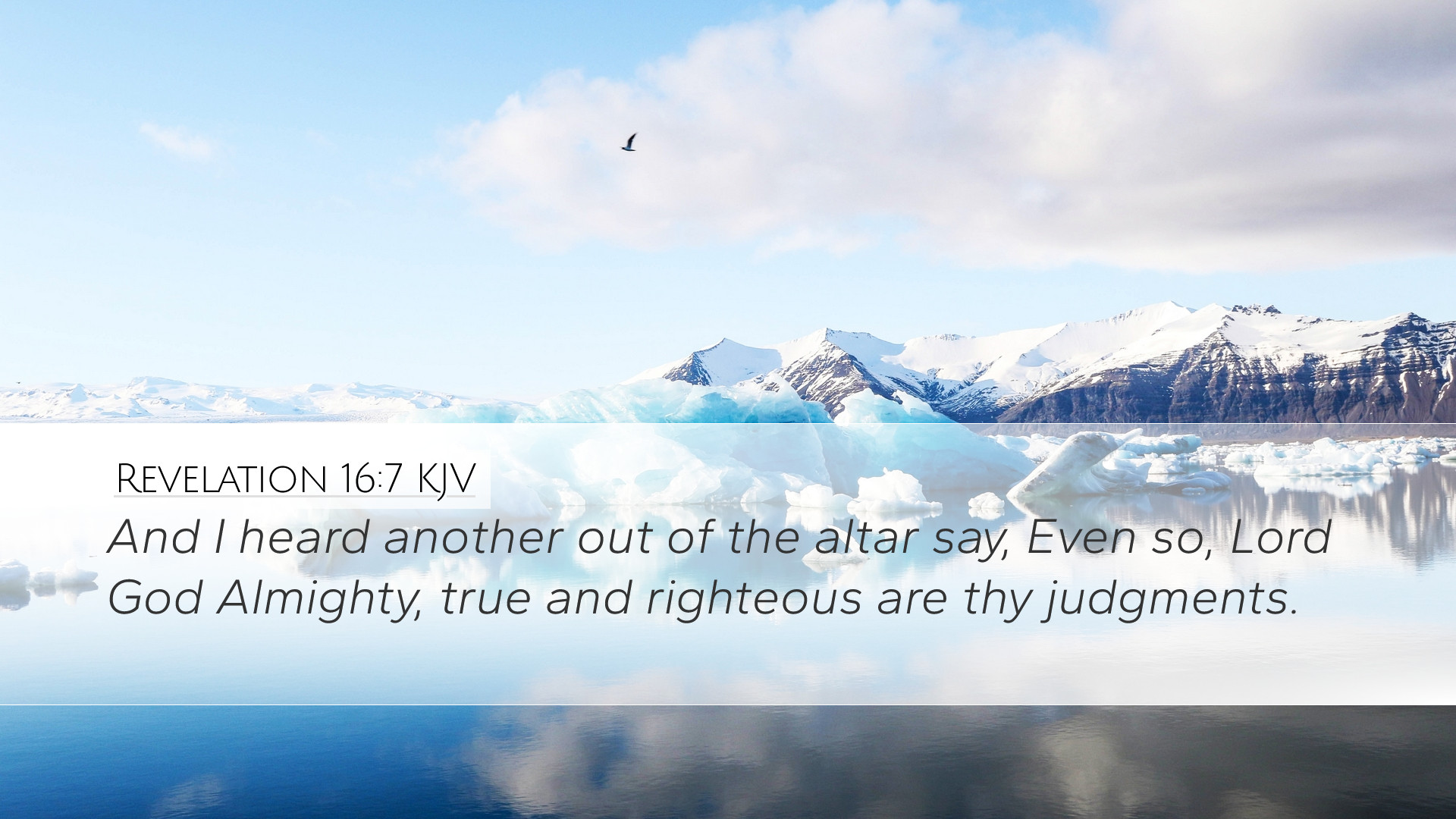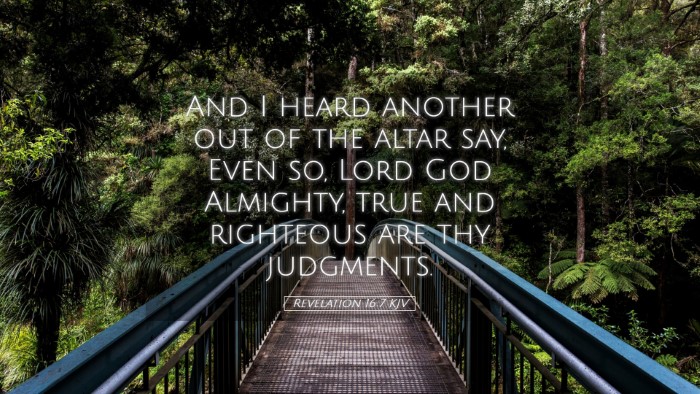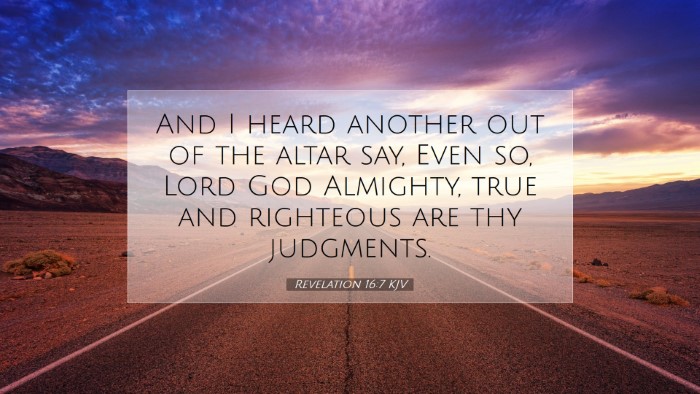Commentary on Revelation 16:7
Verse Context: Revelation 16:7 states, "And I heard another out of the altar say, Even so, Lord God Almighty, true and righteous are thy judgments." This verse is set within the context of the seven bowls of God's wrath, a significant theme in the latter part of the Book of Revelation.
Historical and Theological Background
Understanding the Setting: The Book of Revelation, traditionally attributed to the Apostle John, was written during a time of persecution for early Christians. The imagery and prophetic declarations serve both as a warning and as an assurance of God's ultimate justice.
Judgment Theme: Throughout the text, there is a profound emphasis on God's judgment. The phrase "true and righteous are thy judgments" reflects the nature of God as just and fair, assuring readers that His actions against sin are ultimately grounded in truth.
Commentary Insights
Matthew Henry
Matthew Henry highlights the importance of the altar from which the voice arises. This signifies a place of sacrifice and judgment, indicating that God's justice is preceded by the sacrifice of Christ on the cross. His judgments come from the altar of divine mercy, demonstrating that righteousness is active in fulfilling justice.
Albert Barnes
According to Albert Barnes, the phrase "I heard another out of the altar" suggests a testimony from the heavenly realms regarding God's justice. The altar represents the foundation of God’s authority. This voice, echoing the righteousness of God, confirms the nature of divine retribution where each judgment begets a rightful outcome.
Adam Clarke
Adam Clarke elaborates on the theological implications of this verse, noting that the affirmation of God's judgments being true and righteous is crucial in both personal faith and the broader understanding of eschatological events. He remarks that believers can find comfort in knowing that what seems chaotic and unjust will ultimately culminate in divine righteousness.
Divine Nature of Judgment
True and Righteous: The repetition of “true” and “righteous” serves as an affirmation of God’s unchanging nature. These attributes provide the foundation upon which believers can trust the outcomes of life’s tribulations.
- True: Indicates that God's judgments are in line with reality and truth.
- Righteous: Reflects God’s moral character, ensuring that injustice will not prevail.
The Role of the Martyrs
An important aspect hinted in this verse is the association with the blood of martyrs who have cried out to God for justice (Revelation 6:10). Their voices contribute to the affirmation that God’s judgments are justified and awaited.
Application for Believers
This verse is a source of encouragement for believers facing trials. Understanding the righteousness of God leads to a robust faith that withstands turbulence and injustice in the world. Pastors and theologians can utilize this verse to remind congregants that God’s providence is at play, directing the course of human history towards His divine end.
Conclusion
Revelation 16:7 serves as a reminder of God's justice and truth, offering solace to believers. The voice from the altar reassures that, even in times of despair, God’s judgments are purposeful and ultimately lead to the restoration of righteousness in His creation. Such profound theological insights are crucial not only for teaching purposes but also for grounding personal faith amidst adversity.


